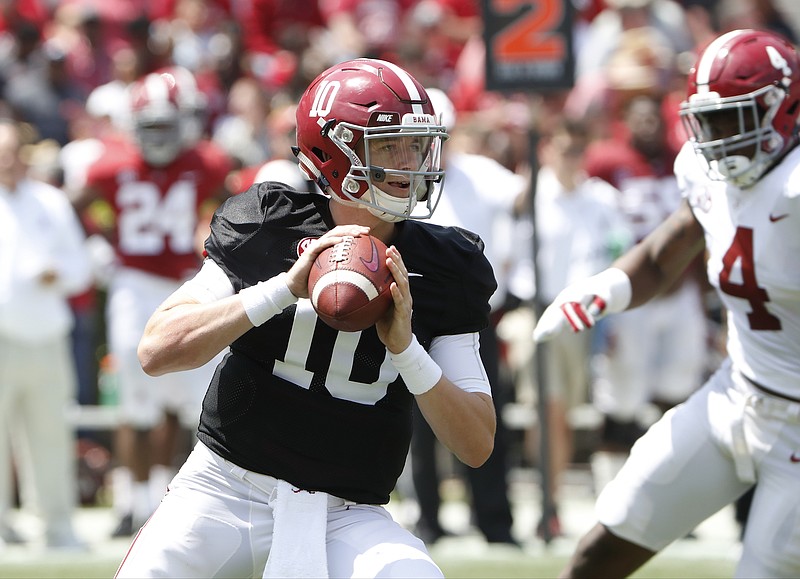College coaches can jump from school to school without asking for permission.
Division I student-athletes now can, too.
The NCAA announced Wednesday that Division I student-athletes will have the ability to transfer to a different school and receive a scholarship without having to ask their current school for permission. The rule change takes effect Oct. 15.
The NCAA Division I Council adopted a proposal this week in Indianapolis that creates a new "notification-of-transfer" model. This new system allows a student-athlete to inform his or her current school of the desire to transfer and then requires that school to enter the student-athlete's name into a national transfer database within two business days.
Once the name is in the database, other coaches are free to contact that individual.
"The membership showed today that it supports this significant change in transfer rules," South Dakota State athletic director Justin Sell, who chairs the Division I Transfer Working Group, said Wednesday. "I am proud of the effort the Transfer Working Group put forth to make this happen for student-athletes, coaches and schools."
In another change made Wednesday by the NCAA Division I Council, football players can participate in up to four games in a season without using a year of eligibility. The 2018 season will be the first under this new guideline.
Miami athletic director Blake James said the change will allow players to preserve a season of competition if, for example, injuries or other factors result in them competing in a small number of games.
"This change promotes not only fairness for college athletes, but also their health and well-being," James said on NCAA.org. "Redshirt football student-athletes are more likely to remain engaged with the team, and starters will be less likely to feel pressure to play through injuries. Coaches will appreciate the additional flexibility and ability to give younger players an opportunity to participate in limited competition."
Had the redshirt change been in effect last season, Alabama third-string quarterback Mac Jones could have played in the Crimson Tide's blowout victories against Vanderbilt, Ole Miss, Tennessee and Mercer without having to lose a year of eligibility.
The previous NCAA transfer rule required student-athletes to get permission from their current school to contact another school before they could receive a scholarship after transferring. Wednesday's rule change ends the practice of coaches and administrators preventing student-athletes from contacting specific schools, but the NCAA pointed out that conferences "can still make rules that are more restrictive than the national rule."
Nicholas Clark, a former Coastal Carolina football player who represents the Division I Student-Athlete Advisory Committee on the Council, said the rule change promotes fairness and the well-being of college athletes.
"This creates a safe place for student-athletes to have a conversation with their coaches and makes the whole process more transparent," Clark said on NCAA.org. "This will clean the process up and give more influence and flexibility to the student-athlete."
In 2014, Georgia football coach Mark Richt gave running back and defensive back J.J. Green an unconditional release to transfer to rival Georgia Tech shortly after the two teams played. Current Georgia coach Kirby Smart, however, blocked the transfer of running back A.J. Turman to Miami (where Richt had taken over) or rival Florida in March 2016. Turman wound up transferring to Florida Atlantic.
Wednesday's change comes on the heels of the Southeastern Conference recently tweaking two of its transfer rules. Two weeks ago at the SEC spring meetings in Destin, Florida, the league's executive committee voted to no longer require its graduate transfer athletes to sit out a year when moving to another league school.
The SEC also voted to allow players to transfer from one conference school to another and become immediately eligible if the former program is facing an NCAA-mandated postseason ban.
Contact David Paschall at dpaschall@timesfreepress.com or 423-757-6524.
